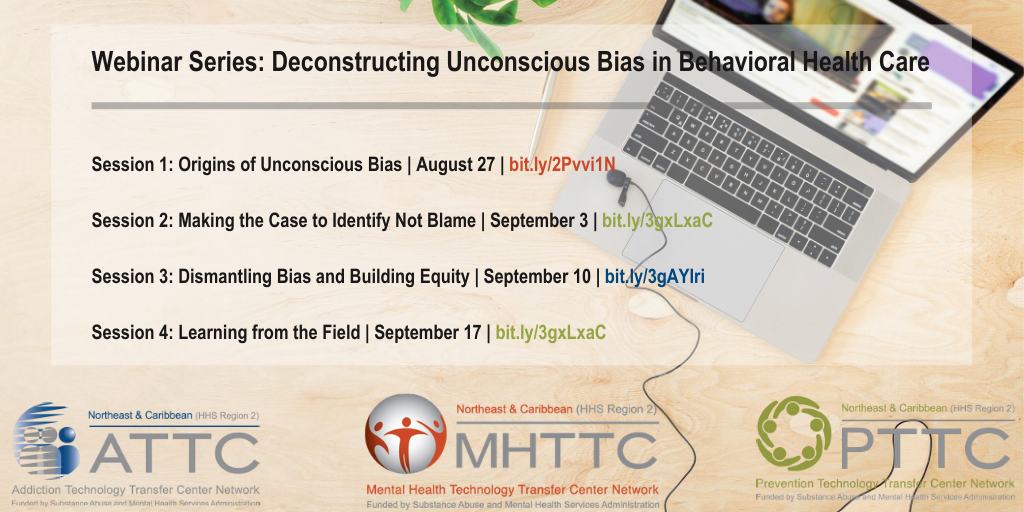Home > Webinar Series: Deconstructing Unconscious Bias in Behavioral Health Care

This series was developed to provide professionals with a review of implicit (i.e. unconscious) bias and how it negatively affects communications, interactions, decision-making and service outcomes for racial and ethnic communities; and offer tools and approaches to address, mitigate and diminish the effects of unconscious bias in the addiction, mental health, and prevention disciplines in order to collectively affect equitable outcomes for persons of color.
Participants may join any or all of the sessions listed below. Each session will include ample time for discussion and Q & A.
Session 1: Origins of Unconscious Bias | Thursday, August 27, 1:00-2:30 pm ET
|
Behavioral health disparities reflect the lack of access to quality care for specific populations. Despite notable efforts to address inequitable outcomes, research suggests that race and ethnicity are predictors of how services are delivered, and unconscious bias is one component that has been identified as influencing the provision of poor care. With the steady rise of the US population and the expected increase in communities of color, the need to address behavioral health disparities has never been more urgent. This first session of the four-part series will discuss how cognitive bias develops, how it is sustained by intrinsic and environmental factors, and how it contributes to inequitable outcomes for persons of color in behavioral health care.
Session 2: Making the Case to Idenify Not Blame | Thursday, September 3, 1:00-2:30 pm ET
|